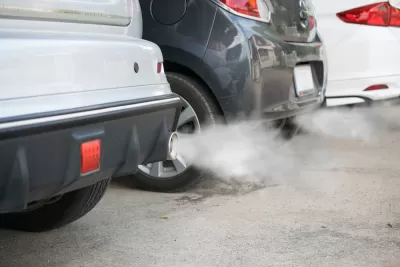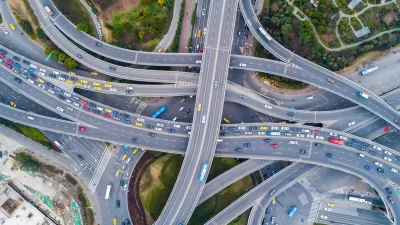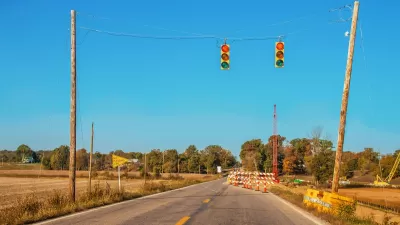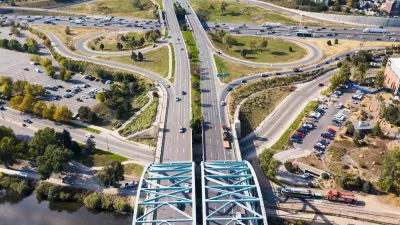A federal proposal that would require states to monitor and set targets to cut greenhouse gas emissions, praised by Democrats, is being called “unworkable” by many Republican states.

Republican-led states are pushing back on a proposal to monitor and curb greenhouse gas emissions from the nation’s highways, calling it federal overreach and arguing that the plan is “illegal and unworkable.” As Daniel C. Vock reports for Route Fifty, the proposal “would require states and metropolitan planning organizations to establish targets for cutting greenhouse gas pollution from vehicles” without implementing any enforcement mechanism. Opponents argue that the FHWA does not have the authority to make such requirements.
According to Vock, “Another major point of friction is over the ability and authority of state transportation departments to handle the requirements.” A statement from the Oklahoma Department of Transportation stated, “The mission and purpose of the Oklahoma Department of Transportation does not include reducing [greenhouse] gasses.”
“The Biden administration’s framework calling for reductions of those pollutants would disproportionately harm rural and fast-growing states, [opponents] also argued,” pointing out that many people in rural states have to drive longer distances for everyday needs.
If this all sounds familiar, it’s because the debate echoes a similar fight over an Obama-era policy revoked by the Trump administration.
The proposal is supported by many Democratic states, the California Air Resources Board (CARB), and the National Association of City Transportation Officials (NACTO), among others.
FULL STORY: States Divided on Setting Targets for Curbing Highway Emissions

Study: Maui’s Plan to Convert Vacation Rentals to Long-Term Housing Could Cause Nearly $1 Billion Economic Loss
The plan would reduce visitor accommodation by 25,% resulting in 1,900 jobs lost.

North Texas Transit Leaders Tout Benefits of TOD for Growing Region
At a summit focused on transit-oriented development, policymakers discussed how North Texas’ expanded light rail system can serve as a tool for economic growth.

Why Should We Subsidize Public Transportation?
Many public transit agencies face financial stress due to rising costs, declining fare revenue, and declining subsidies. Transit advocates must provide a strong business case for increasing public transit funding.

Alabama: Trump Terminates Settlements for Black Communities Harmed By Raw Sewage
Trump deemed the landmark civil rights agreement “illegal DEI and environmental justice policy.”

Dear Tesla Driver: “It’s not You, It’s Him.”
Amidst a booming bumper sticker industry, one writer offers solace to those asking, “Does this car make me look fascist?”

A Visual Celebration of Manhattan’s Chinatown Elder Community, Through Food
Lanterns, cafeteria trays, and community connection take center stage in this stunning photo essay.
Urban Design for Planners 1: Software Tools
This six-course series explores essential urban design concepts using open source software and equips planners with the tools they need to participate fully in the urban design process.
Planning for Universal Design
Learn the tools for implementing Universal Design in planning regulations.
City of Santa Clarita
Ascent Environmental
Institute for Housing and Urban Development Studies (IHS)
City of Grandview
Harvard GSD Executive Education
Toledo-Lucas County Plan Commissions
Salt Lake City
NYU Wagner Graduate School of Public Service





























